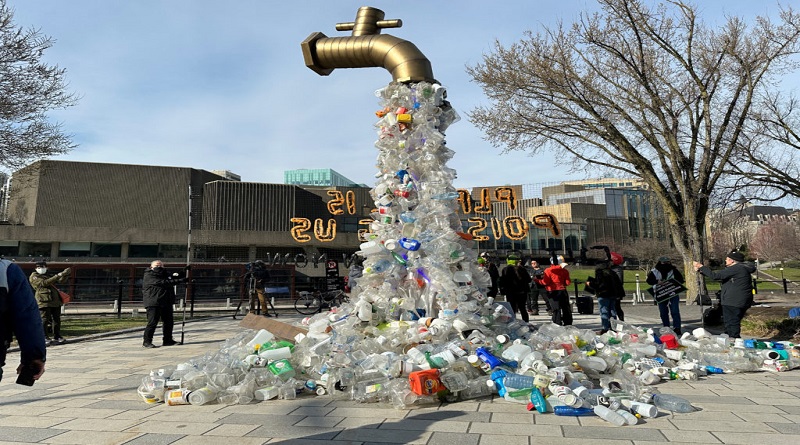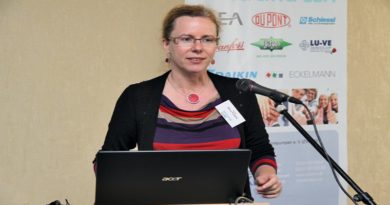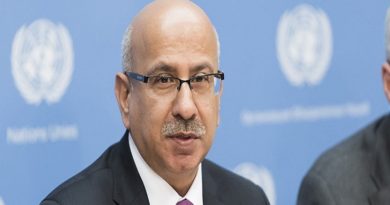Reaction as UN talks fail to agree a global plastics treaty
A global water purification and beverage solutions leader, Bluewater has slammed the collapse of UN talks on plastic pollution in Busan, South Korea, calling it a significant setback in the fight against environmental damage.
“Failing to reach an agreement highlights the need for transparency and accountability in managing our water resources amidst the growing threat of plastic pollution to public health,” said Bengt Rittri, founder and CEO of Bluewater. Rittri, a Swedish ecopreneur and passionate advocate for eliminating single-use plastic, points out that despite mounting evidence of microplastics contaminating air, food, water, and even human organs, global plastic production is forecast to triple by 2050.
Rittri’s comments followed the failure of countries at a UN conference in Busan, South Korea, last week to agree a global treaty to limit plastic pollution. Despite microplastics found in air, food, and water as well as in human organs, plastic production is forecast to triple by 2050 to 1.1 million tonnes, according to the United Nations Environment Fund (UNEP).
Mr Rittri notes that studies have shown that microplastics carry harmful pollutants like PFAS, chemicals linked to cancer, hormone disruption, or developmental problems, endangering ecosystems and communities alike.
Rittri founded his Swedish-based company with a planet-friendly business plan: to harness human ingenuity to innovate tech solutions that would eliminate the need for single-use plastic water bottles.
Bluewater believes that manufacturers of single-use plastic products should be held accountable for managing the plastic waste generated. Over 600 billion single-use plastic bottles are produced annually, with only nine percent currently being unrecycled.
“It’s now vital we all come together to advocate for a future where clean water is a right, not a privilege, ensuring that every person on the planet has access to safe and uncontaminated drinking water without the need for single-plastic containers,” said Mr. Rittri.
Recall that countries negotiating an international legally binding instrument on plastic pollution, including in the marine environment, adjourned their fifth session on Monday 2 December 2024 with agreement on a ‘Chair’s Text’ that will serve as the starting point for negotiations at a resumed session in 2025.
Over 3,300 delegates – including Members representing more than 170 nations and Observers from more than 440 organizations – have been meeting in Busan, Republic of Korea, since 25 November for the fifth session of the Intergovernmental Negotiating Committee (INC-5). Through the week, Members negotiated two documents by the INC Chair, Ambassador Luis Vayas Valdivieso, before agreeing on the closing day to transmit the Chair’s Text to the resumed session.
“The world’s commitment to ending plastic pollution is clear and undeniable. Here in Busan, talks have moved us closer to agreeing on a global legally binding treaty that will protect our health, our environment, and our future from the onslaught of plastic pollution,” said Inger Andersen, Executive Director of the UN Environment Programme (UNEP).
“This week’s meeting has made good progress towards securing the deal the world demands. Through the Busan talks, negotiators have reached a greater degree of convergence on the structure and elements of the treaty text, as well as a better understanding of country positions and shared challenges. But it is clear there is persisting divergence in critical areas and more time is needed for these areas to be addressed.”
“At UNEA 5.2, the world promised to tackle plastic pollution. Now, at the next round of talks, the world will have the opportunity to finally make that a reality. An opportunity we cannot afford to miss,” she added.
Following INC-5, the Committee is expected to request the Executive Director of UNEP to inform delegations of the venue for the resumed fifth session.
“Our mandate has always been ambitious. But ambition takes time to land. We have many of the elements that we need, and Busan has put us firmly on a pathway to success,” said Ambassador Vayas. “I call on all delegations to continue making paths, building bridges, and engaging in dialogue.”
“Let us always remember that our purpose is noble and urgent: to reverse and remedy the severe effects of plastic pollution on ecosystems and human health,” he added.
In March 2022, at the resumed fifth session of the UN Environment Assembly (UNEA-5.2), a historic resolution was adopted to develop an international legally binding instrument on plastic pollution, including in the marine environment. The instrument, according to the resolution, is to be based on a comprehensive approach that addresses the full life cycle of plastic, including its production, design, and disposal.
“We have tested the resilience of this planet to its limit, now is the time for us push our own limits and honour the trust placed in us – we have no choice but to succeed. You have the INC Secretariat’s and my unwavering support to get this done,” said Jyoti Mathur-Filipp, Executive Secretary of the INC Secretariat.
INC-5 follows four earlier rounds of negotiations: INC-1, which took place in Punta del Este, in November 2022, INC-2, which was held in Paris in June 2023, INC-3, which happened in Nairobi in November 2023, and INC-4, held in Ottawa in April 2024.




